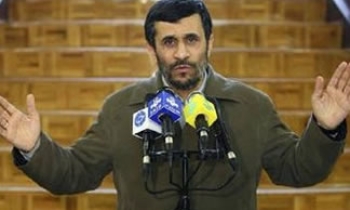New Delhi: Urging the country’s media houses to professionalise and institutionalise the concept of press freedom, Prime Minister Manmohan Singh on Saturday said that visibility and multiplicity of publications did not automatically guarantee credibility, and that there was a need to project the Fourth Estate in a more transparent manner.
Daily News and Analysis (DNA) newspaper here this morning, Dr. Singh said, "Freedom of press is not automatically ensured by multiplicity of publications. It has to nurtured by society, by the State, and its institutions, and by the corporate interests that invest in media."
"It is necessary to have professional codes, rules of the game and institutional frameworks that guarantee the freedom of press. A vibrant press council, an active association of journalists, a watchdog Ombudsman, a transparent editorial policy are all instruments through which freedom of the press can be secured and ensured," Dr Singh further pointed out.
Describing the media as an important pillar of any democratic country, Dr. Singh said it should stand up to public scrutiny whenever asked to.
"One often finds that those who most zealously guard the freedom of press from any form of social or public audit or regulation, deny that freedom internally within the organisation. I have often heard people complain about internal censorship, about articles being rejected merely because the editor did not like it. I wonder if this can be defended as the assertion of the freedom of press? Or is it editorial tyranny or corporate censorship? Is it necessary and possible for editors and publishers to be more transparent as to why hold the views they do, or publish or refuse to publish, broadcast or refuse to broadcast specific news and artciles? How does one distinguish between freedom, license and prejudice?" "I hope such questions engage professional journalists," the Prime Minister said.
Praising the role of media in strengthening Indian democracy, he said, "Our democracy has been made richer and more participative by our free and varied press. That newspapers and television channels of varying size and scope are able to compete and operate testifies to the complexity of our market for information and entertainment. It is because of the plurality of our society that we have such diverse media. This is the strength of our democracy," he said.
"I welcome new publications and new channels in hope that they will contribute to this pluralism by giving voice to all opinions," he said, adding that Indian journalism must aspire to compete with the best talent in the world.
Union Information and Broadcasting Minister Jaipal Reddy said: "Today media is the hottest scene in India with proliferation of newspapers and channels.Barring the non-news channels, all other media ventures including marketing and advertising agencies have been allowed 100 per cent Foreign Direct Investment."









